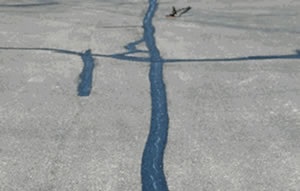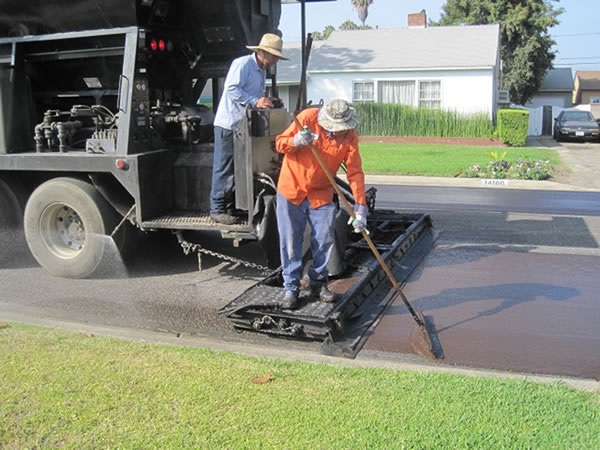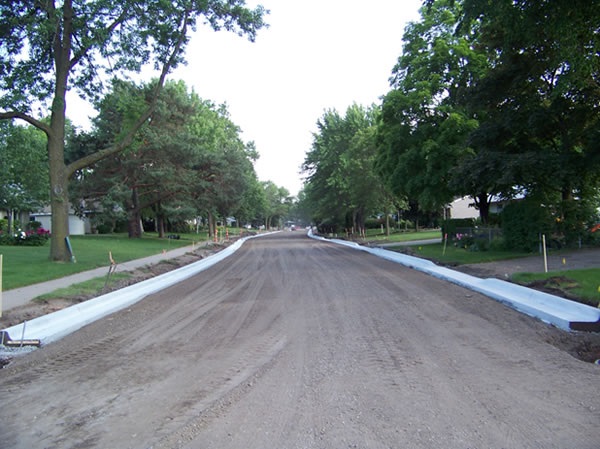Street Maintenance Definitions and Costs
Crack Sealing

Cost: Approximately $5,500 per lane mile*
Crack sealing is a short-term, cost-effective way to maintain the life of pavement. It seals the cracks from water intrusion and other damaging factors that could lead to premature sub base failure. The material is made up of crumb rubber and emulsified asphalt for flexibility due to the expansion and contraction of asphalt surfaces. It is applied hot to create a bond with the existing pavement. If a crack seal is covered by a seal coat or a chip seal within a year or two, the life expectancy can more than double. Life expectancy is between 3-5 years.
Surface Sealing

Cost: Approximately $35,000 per lane mile*
Seal coating is a short-term, cost effective way to prolong the life of pavement. It protects the asphalt pavement from ultraviolet rays and water, helping to slow the process of oxidation and raveling. The goal of seal coating is to create a waterproof, protective coating that can increase the life of pavement and improve appearance, but not necessarily ride quality.
Littleton uses two different surface sealing methods: slurry seal(PDF, 63KB) and chip seal(PDF, 64KB). Life expectancy of a seal coat is 3-5 years.
Mill & Overlay

Cost: Approximately $320,000 per lane mile*
An asphalt overlay is a long term but costly repair to the asphalt pavement. It provides a new, strong, crack free, smooth driving surface. Before an overlay is put down, all areas that are potholed, excessively alligatored (small cracking resembling the skin of an alligator) or have subgrade damage are repaired to maximize the life of the overlay. A milling process is completed by grinding off between 1" and 3" of the existing asphalt surface and then hot asphalt is applied by large paving machines and pneumatic and steel wheel rollers. The life expectancy is between 15-20 years.
Reconstruction

Cost: Approximately $1.3 million per lane mile*
A complete reconstruction is a long term, but extremely expensive repair to the street. It provides a new, strong, crack-free, smooth driving surface. It requires removing all old asphalt and failed sub base, replacing and compacting new sub base materials, and establishing proper shape and grade of the sub surface prior to placing hot asphalt. Hot asphalt is applied by large paving machines and pneumatic and steel wheel rollers. The asphalt thickness is generally 6" on residential streets and 8" on primary and secondary routes. The life expectancy is between 20-25 years.
*Project costs are approximate 2016 bid prices